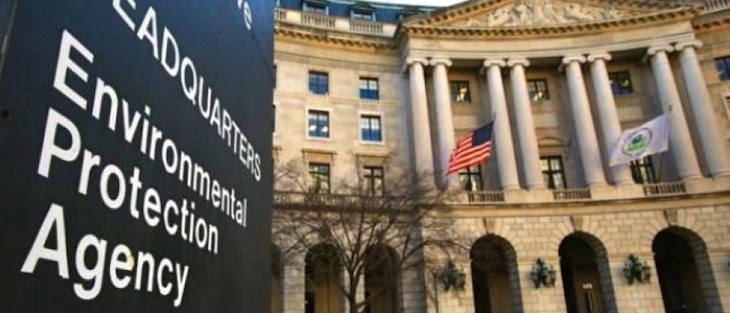U.S. Sens. Boozman, Cotton applaud rollback of WOTUS rules
by June 28, 2017 4:22 pm 545 views

The Waters of the U.S. Rules (WOTUS) face significant revisions after the Environmental Protection Agency announced it intends to withdraw from the controversial regulation.
WOTUS is the EPA’s right to control authority over rivers, lakes, streams, and other bodies of water under the 1972 Clean Water Act. This control was expanded by the Obama administration with its Clean Water Rule in 2015. Farmers, ranchers, and others in the agriculture industry have long decried WOTUS, saying the EPA regulations restrict farming practices.
President Donald Trump had ordered the EPA to review WOTUS earlier this year, and the U.S. Supreme Court upheld the legality of the expanded WOTUS regulations in April. EPA Administrator Scott Pruitt released a proposal on Tuesday to rescind the controversial regulations. It’s the first legal step in changing the regulations. Almost no action has been taken as a result of the Obama-era regulation changes. The changes have been mired in federal court. When new regulations might take hold is unclear.
U.S. Rep. Rick Crawford, R-Jonesboro, told Talk Business & Politics he is pleased with the decision, saying the Obama administration overreached with water rules to the detriment of rural communities.
“I think we have to dispel the myth that WOTUS was about clean water. We all want clean water, and characterizing opposition to WOTUS as being against clean water is an incredible oversimplification. The fact is, WOTUS was vague, poorly written, and an unprecedented expansion of federal regulation that didn’t take into consideration the livelihoods of many folks living in rural America,” Crawford said. “Despite enormous push back from farmers and ranchers, the former administration finalized WOTUS, and they did so in part through an illegal lobbying effort that manufactured fraudulent support for the rule. WOTUS would have subjected producers and landowners to jurisdictional challenges and unprecedented levels of compliance costs. It’s a relief to all of us that the new administration is listening to affected stakeholders and will be scrapping the rule.”
How this will impact Arkansas farmers was not immediately known. The expanded rule was supported by clean water advocates and environmental groups because it expanded the number of bodies of water that were included in WOTUS and it clarified the EPA’s jurisdiction. It deals with waterways that impact drinking water supplies. Erosion, chemicals, run-off, land use, and others are among the regulated factors under Wotus.
The National Resources Defense Council has fought attempts to stop WOTUS regulations. The organization also opposed attempts by the Trump administration to rollback environmental regulations.
“This proposal strikes directly at public health,” NRDC President Rhea Suh, said in a statement. “It would strip out needed protections for the streams that feed drinking water sources for 1 in every 3 Americans.” She called it a “reckless attack on our waters and health.”
U.S. Sens. John Boozman, R-Ark., and Tom Cotton, R-Ark., applauded the rollback of WOTUS.
“This is a wise move-and much overdue. Arkansans should make their own decisions about their own farmland-as they have for generations-without the EPA looking over their shoulders. Rescinding this rule will do a lot to restore trust between rural America and the EPA, and I commend the president for taking this step,” Cotton said.
Boozman has long opposed WOTUS regulations and thinks this is a step in the right direction for farmers.
“This is a win for Arkansas homeowners, small businesses and family farmers who will regain control from Washington of decisions on how to best use their land. I look forward to working with my colleagues and the administration to ensure we follow Congressional intent of the Clean Water Act when developing a rule that protects waters sources and the rights of landowners,” Boozman said.
